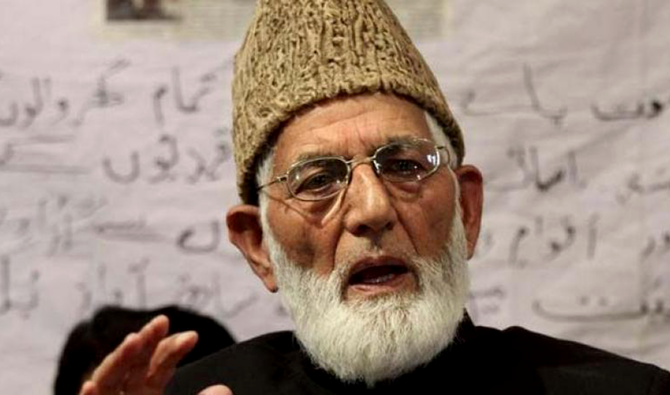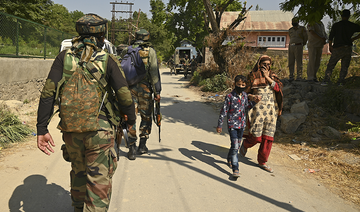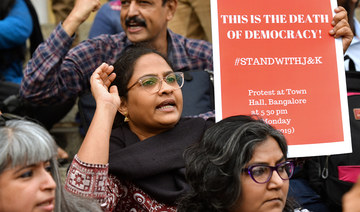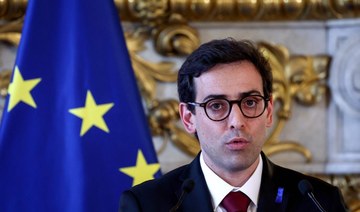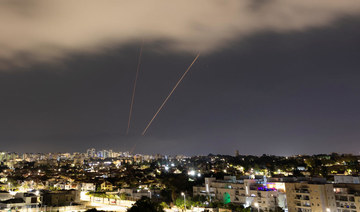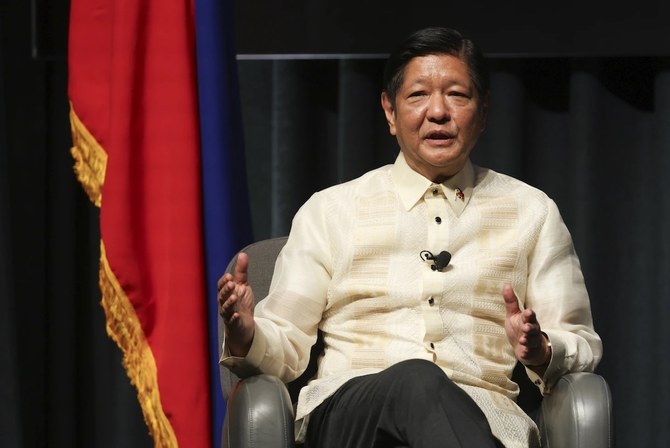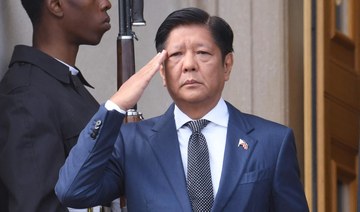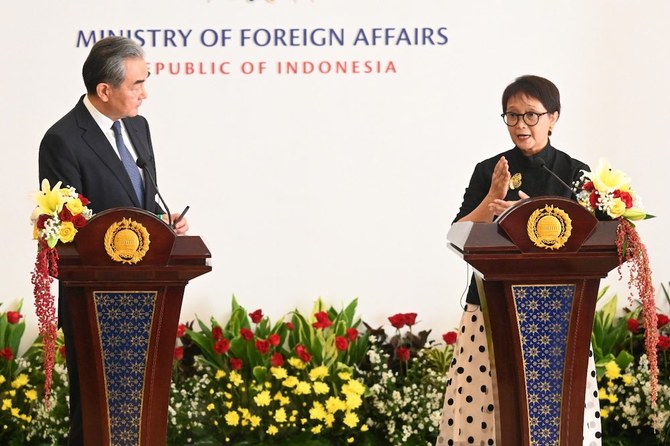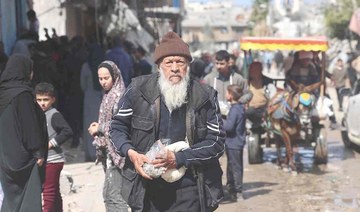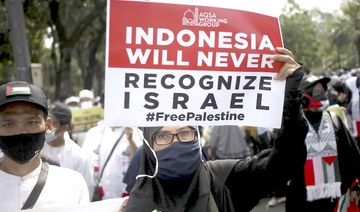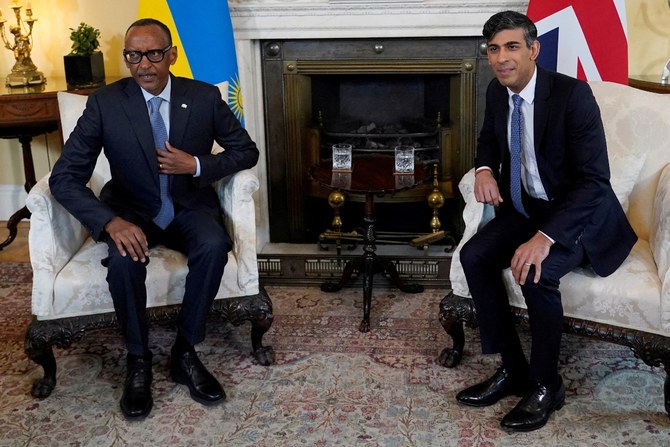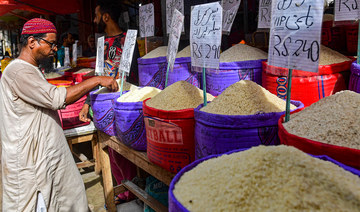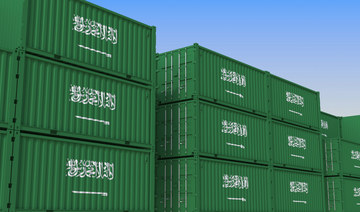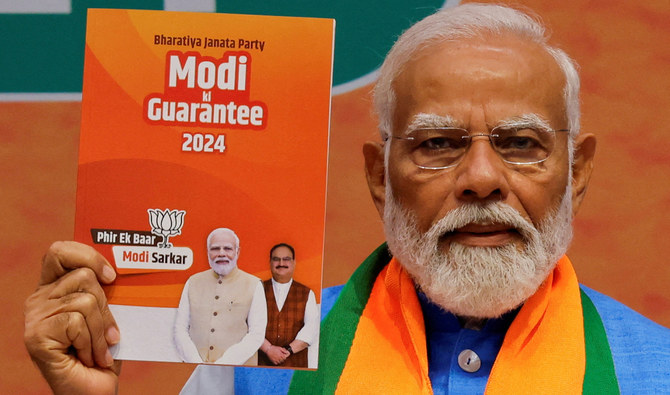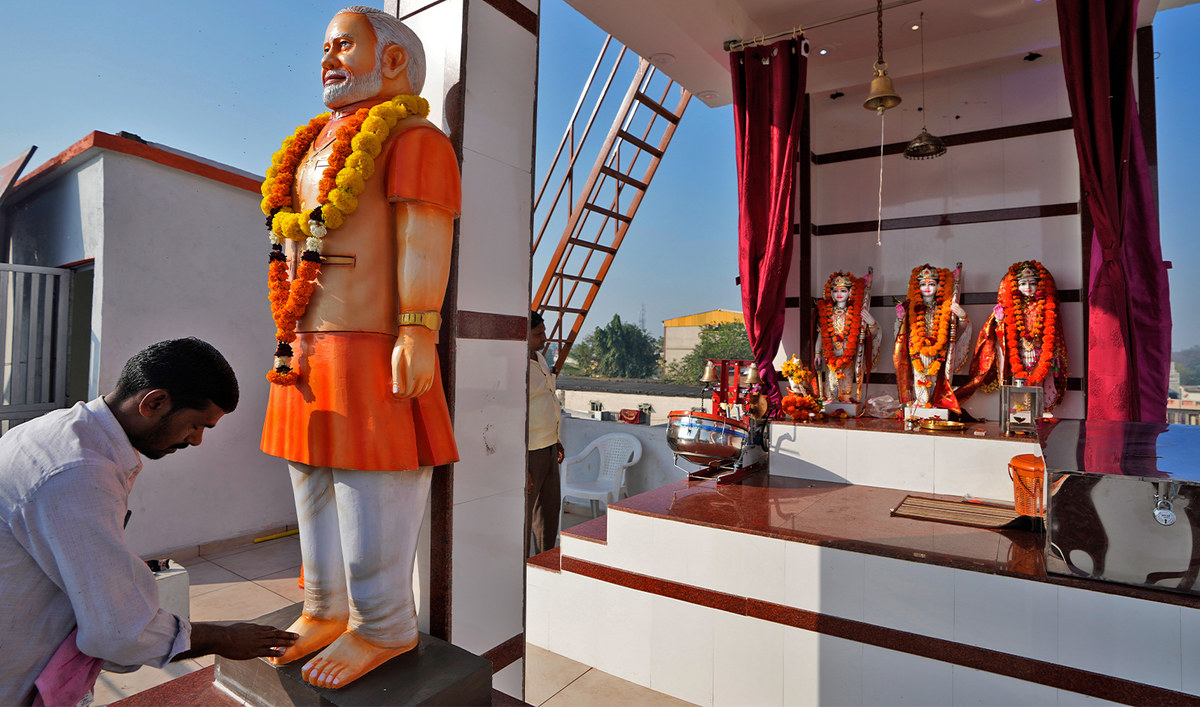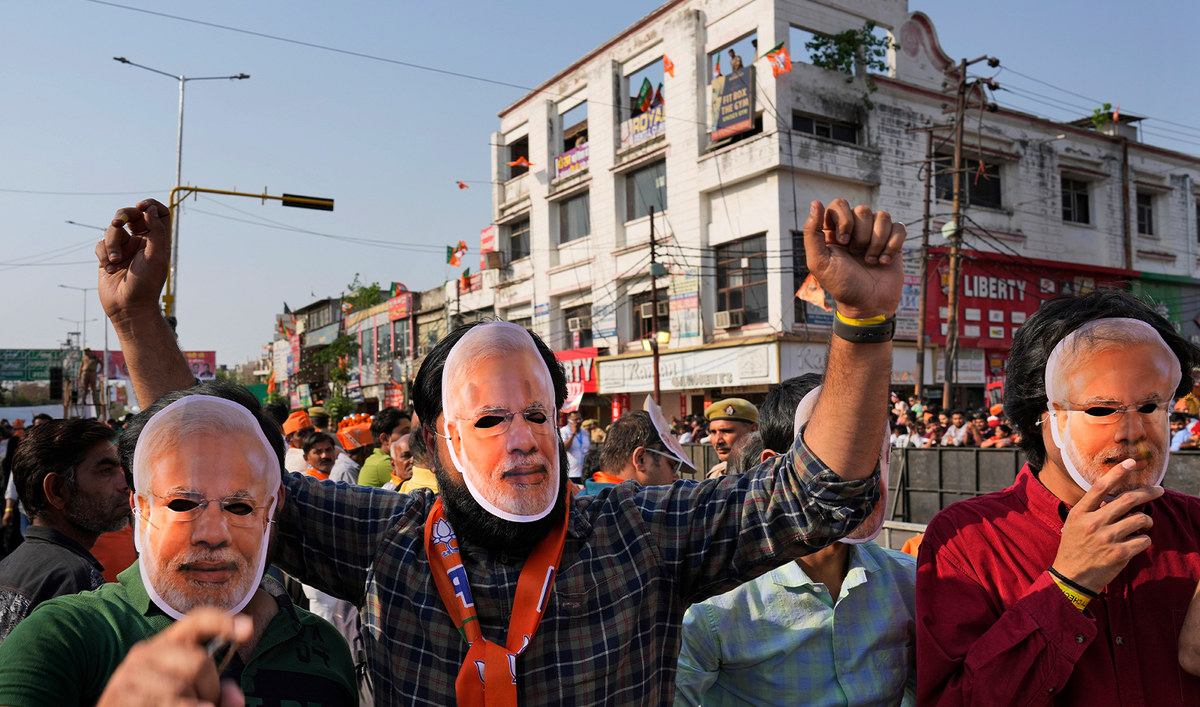NEW DELHI: A veteran politician in Indian-administered Kashmir, Syed Ali Shah Geelani, has quit as head of the Hurriyat Conference after accusing members of the pro-freedom alliance of not doing enough to counter New Delhi’s efforts to tighten its grip on the disputed region.
In a two-page resignation letter on Monday, the 90-year-old leader said: “Keeping in view the present situation in Hurriyat Conference, I announce my decision to part ways with it.” He added that several members had conspired against him and “lacked discipline and accountability.”
Geelani’s decision could further weaken the pro-freedom movement in the region which came to a boiling point after the abrogation of Jammu and Kashmir’s special status by Indian Prime Minister Narendra Modi’s government last year.
The move resulted in the scrapping of Article 370, a decades-old constitutional provision which gave the disputed state special rights. In the run-up to the announcement on Aug. 5, hundreds of pro-freedom leaders and activists were arrested and detained in jails throughout the country.
A few, however, were placed under house arrest.
Blaming these leaders in his letter for failing to take a stand against the elimination of Kashmir’s special status, Geelani said: “After Aug. 5, the leaders who were not arrested were expected to lead the people, give them hope. Despite my house detention and government curbs, I searched hard for you, but you were not available. I couldn’t do much because of my ill-health and detention.”
There has so far been no reaction from other constituents of the Hurriyat to the development.
However, the ruling Bharatiya Janata Party (BJP) blamed Geelani for “ruining the lives of Kashmiri youth.” In a tweet on Monday, BJP Secretary-General Ram Madhav said: “This man was singularly responsible for ruining the lives of thousands of Kashmiri youths and families; for pushing (the) valley into terror and violence. (He) now resigns from Hurriyat without giving a reason. Does it absolve him of all the past sins?”
Another senior party leader, Avinash Rai Khanna, described Geelani’s resignation as the “biggest benefit of the removal of Article 370.”
Within Kashmir, Geelani was the most prominent face of the pro-freedom movement against the Indian government and has been living under house arrest since 2010 after New Delhi charged him for sedition.
Geelani began his political career in the 1970s after being elected three times to the local assembly.
However, at the height of militancy in the 1980s and 1990s, he left mainstream politics and joined anti-India protests.
That was when he formed a conglomerate of small, political, and religious groups and inaugurated the All Party Hurriyat Conference (APHC) in 1993, demanding freedom and a separate state for Kashmir.
Part of his approach included adopting a hardline stance against any talks with India, leading to a schism in his group in 2003 and resulting in Mirwaiz Umar Farooq becoming the leader of a separate faction of the Hurriyat Conference, known as the moderates. After the group split, Geelani became the lifelong president of his conglomeration.
Commenting on his resignation, Geelani’s granddaughter Ruwa Shah tweeted on Monday that, “one cannot resign from an ideology, a political stand, belief, and faith.”
Radha Kumar of the Delhi Policy Group think tank, who also served as a government interlocutor in Kashmir in 2010, on Tuesday told Arab News that Geelani’s resignation at this stage “raises more questions.”
She said: “One impact I feel is going to be the downgrading of the APHC. It could be that Geelani is trying to push himself as the only voice that stands for Kashmiri sentiment. That way he is trying to regain some credibility for himself by trying to say that others in the group failed to take a stand on Kashmir after Aug. 5.”
Prof. Abdul Ghani Bhatt, who has been part of the moderate faction of the Hurriyat, disagreed. Declining to comment on Geelani’s resignation, he told Arab News: “So long as Kashmir is a dispute, no Kashmiri can be rated as irrelevant. Beat of hearts never change, despite the fact that your tongue speaks a different word.”
Bhatt called on India to stop looking at Kashmir “as geography.” He said: “Kashmir as a problem has to be understood with reference to political psychology rather than political geography,” adding that he favored talks with Pakistan.
“I wish both India and Pakistan hear the beat of our collective heart and rise to the occasion and resolve the problem in Kashmir for a brighter tomorrow for the South Asian region.”
Meanwhile, Prof. Ghulam Mohamad Shah of New Delhi-based Jamia Millia Islamia central university, said that the move might be an indication of churning politics in the valley.
“It’s possible that Geelani is trying to position himself as a core nationalist voice of Kashmir who is resisting the designs of the Indian state.
“He might be a rallying point where mainstream political and pro-independence voices come on a single political platform to raise the collective voice against New Delhi which has been trying to alter the political character and special status of Jammu and Kashmir,” he added.



